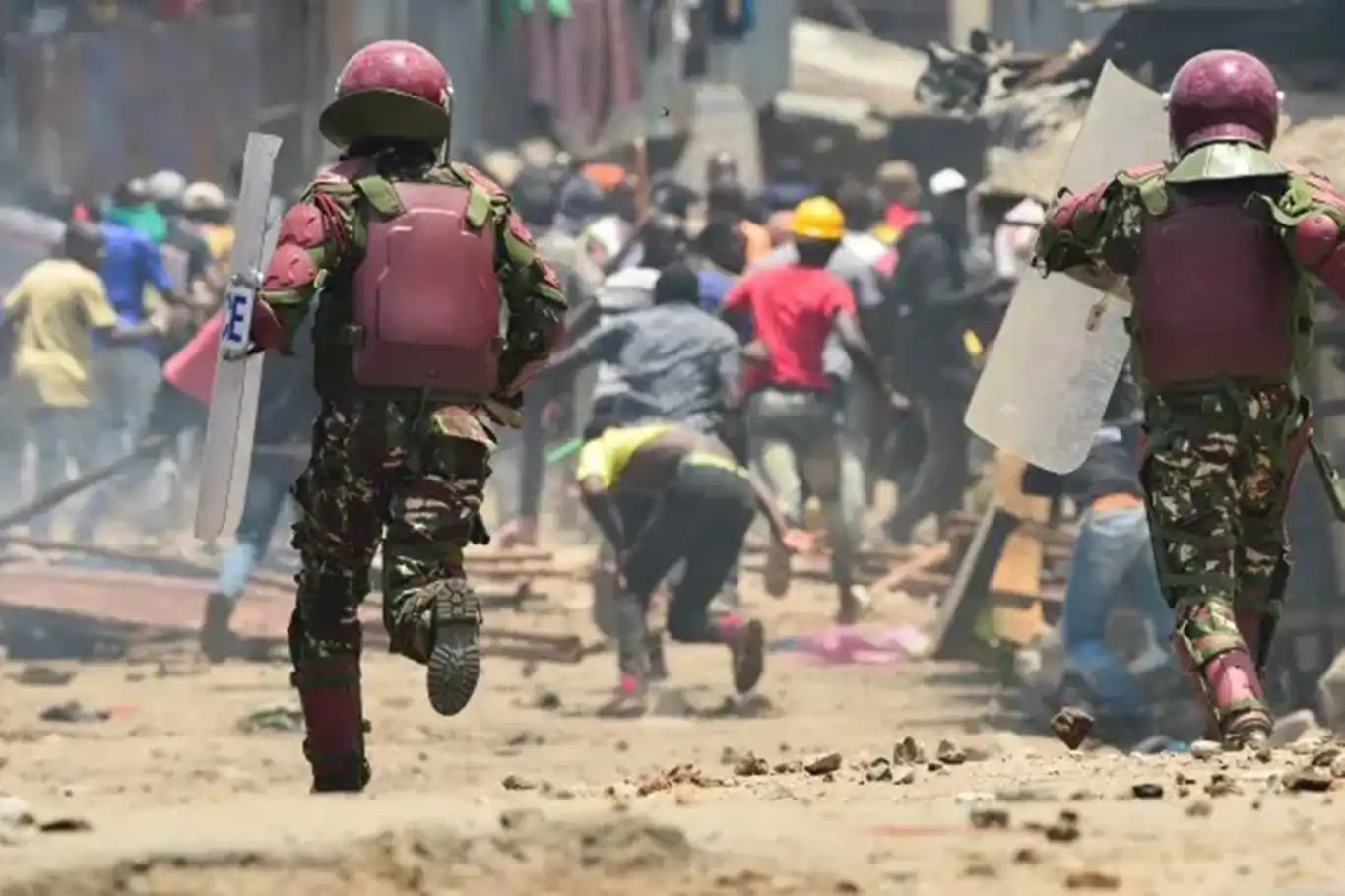Kenya: 11 killed, over 500 arrested in nationwide anti-government protests


At least 11 people were killed and 567 arrested across the country on Monday as nationwide anti-government demonstrations coinciding with the 35th anniversary of the 1990 Saba Saba uprising descended into chaos and bloodshed.
Led primarily by Gen-Z youth demanding good governance, police accountability, and justice for victims of brutality, the protests erupted across 17 of Kenya’s 47 counties, culminating in violent confrontations between demonstrators and heavily armed security forces.
According to the Kenya National Commission on Human Rights (KNCHR), at least 10 of the deaths were the result of excessive and unlawful police force. The commission condemned the conduct of law enforcement, accusing officers in plainclothes and unmarked vehicles of operating in coordination with armed criminal gangs to violently suppress demonstrations in Nairobi, Kajiado, Nakuru, Kiambu, and Eldoret.
In addition to the fatalities, the KNCHR documented 29 injuries, 37 arrests, and two abductions. Police, however, disputed these claims, asserting that their officers exercised “exceptional restraint and professionalism.” They reported that 52 officers were injured during clashes, along with 11 civilians.
One of the most shocking incidents occurred outside a hospital in Nairobi, where hundreds of protesters had gathered to claim the bodies of those killed earlier in the day. Police reportedly opened fire on the crowd, further escalating tensions.
In Nairobi, fires burned through key city streets as demonstrators attempted to breach barricades protecting strategic government institutions, including the State House and Parliament, which were fortified with razor wire. Police responded with tear gas and water cannons to disperse the swelling crowds.
In Meru county, a shopping center in Makutano was set ablaze, sending thick plumes of black smoke into the sky. In Ol Kalou, a protester was shot dead, while another sustained serious injuries. In Kamukunji, near the site of the original Saba Saba uprising, police battled protesters who set fires in the streets, symbolically reclaiming the area’s legacy of resistance.
Roadblocks and clashes caused widespread disruption across the country. In Nairobi, travelers were stranded more than 10 kilometers from the city center due to police checkpoints. Some schools were forced to close, advising students to stay home amid the unrest.
Opposition leader and former Prime Minister Raila Odinga was expected to address demonstrators at Kamukunji but canceled his appearance, citing roadblocks that prevented access. Speaking to media later, he condemned what he called a “rogue police force that shoots people with impunity,” and renewed calls for a national dialogue on police reform and state accountability.
The latest violence follows deadly anti-tax protests on June 25, in which 19 people were killed and thousands of businesses looted. The government has come under increasing pressure to address systemic grievances over economic inequality, youth unemployment, and police repression.
The climate of fear and intimidation extended to human rights organizations. On Sunday, an armed gang of at least 25 individuals on motorbikes attacked the KNCHR headquarters in Nairobi during a press conference organized by women activists protesting state violence. The assailants, chanting “There will be no protest today,” looted phones, laptops, and valuables from journalists and participants, according to KNCHR spokesman Ernest Cornel.
Police have not confirmed any arrests related to the attack and maintain that they are investigating the incident.
Monday’s protests carried deep symbolic weight. On July 7, 1990, pro-democracy activists defied the authoritarian regime of President Daniel arap Moi, demanding an end to single-party rule. The resulting protests left at least 20 dead and marked a turning point in Kenya’s path toward multi-party democracy.
As Kenya reels from yet another day of bloodshed, many wonder whether the aspirations of the Saba Saba movement—freedom, democracy, and dignity—remain unfulfilled dreams for millions still waiting for justice. (ILKHA)
LEGAL WARNING: All rights of the published news, photos and videos are reserved by İlke Haber Ajansı Basın Yayın San. Trade A.Ş. Under no circumstances can all or part of the news, photos and videos be used without a written contract or subscription.
Indonesia has granted visa-free entry to citizens of Brazil and Türkiye, offering 30-day stays for purposes including tourism, business, and medical treatment.
Yemeni Armed Forces announced on Monday the complete sinking of the commercial vessel "Magic Seas" in the Red Sea.
The first round of the Political Consultative Mechanism between the Ministries of Foreign Affairs of the Islamic Emirate of Afghanistan and Pakistan took place in Islamabad, marking a significant step in bilateral dialogue.
The Palestinian Red Crescent Society (PRCS) announced the immediate suspension of operations at its Al-Zaytoun medical clinic in eastern Gaza City on Tuesday, citing intense Israeli shelling that endangered medical staff and patients.